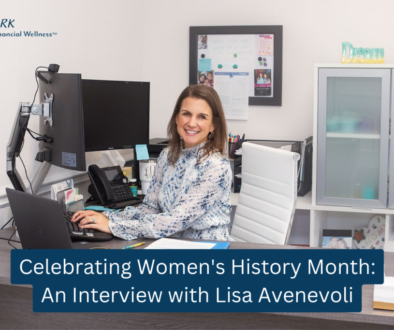Open Enrollment
Most employers have open enrollment sometime between October and December each year. This means it’s your once-a-year opportunity to assess your employee benefits – healthcare coverage, life insurance, stock options, ESPP, 401k, etc. – to ensure you are taking advantage of what you need AND opting out of benefits you may no longer need.
Now is the time to review what you currently have alongside your overall financial plan and any major life changes over the past year, and then fix any discrepancies. Most employees simply check the boxes to continue with the same benefit options as the year before – often due to lack of time to really dig and determine how to best maximize the offerings.
Taking the time to review your employee benefits can end up saving you money, making you more money, and securing better insurance coverage. It seems like a daunting task now, but it’s going to be well worth your time and energy in the long run. Don’t take your benefits for granted! Make sure you are using them to their fullest potential. Working with a financial advisor can help make this process less complicated and organized.
Here are our top tips on reviewing the three most common benefit offerings that most companies provide their employees.
- Health Care Coverage
Many spouses double up on health insurance and this isn’t necessarily a good thing. Working with your partner to make sure you have enough insurance coverage, but aren’t overpaying, is the best way to take advantage of your benefits. All these decisions are based off your specific needs, goals, and overall financial plan. Here are some questions to ask yourself:
Do you need more coverage? Or different coverage? Does your company offer a Health Savings Account (HSA)? Have you opted out in the past because you just don’t understand it?
You could be missing out on major tax benefits and other savings by avoiding a more thorough review of ALL options! Of course, with any health care coverage options, it is important to factor in your cash flow along with your medical needs, such as prescriptions, preventative care, urgent care, and provider preferences. Weigh the pros and cons and cost-effectiveness of each offering to make an informed decision.
- Life Insurance
Use your financial plan to help determine how much (if any) life insurance you need. From there, consider if it is best to obtain coverage through your employer or outside of your workplace. Are you considering switching jobs or careers? Do you have a history of health issues? Are you planning to retire early, but will need coverage beyond that time? The answers to these questions all factor into the decision on how much you need, as well as whether or not to opt-into any additional employer offered life insurance coverage.
- 401k (or other employer sponsored plans)
Be sure to contribute enough to your 401k to at least get your employer match. If you don’t, you’re leaving free money on the table.
This is a good time to review your 401k investment holdings and any new offerings and make adjustments according to your risk tolerance. Again, all of these changes are based on your overall financial plan, which reflects your income, goals, needs, wants, and wishes.
Working with a financial advisor is a great way to make sure you are maximizing all of your employee benefits, and not paying for those benefits that you don’t need. We can help you determine how much to contribute into your 401k, how much life insurance you and your spouse need, and which health insurance plan is best for you.
Reviewing your benefits package on a yearly basis is so important, especially when you are going through major life changes. Doing this can feel confusing and overwhelming, so don’t be afraid to reach out and schedule an appointment. We are here to help!
Disclaimer:
This work is powered by Advisor I/O under the Terms of Service and may be a derivative of the original.
The information contained herein is intended to be used for educational purposes only and is not exhaustive. Diversification and/or any strategy that may be discussed does not guarantee against investment losses but are intended to help manage risk and return. If applicable, historical discussions and/or opinions are not predictive of future events. The content is presented in good faith and has been drawn from sources believed to be reliable. The content is not intended to be legal, tax or financial advice. Please consult a legal, tax or financial professional for information specific to your individual situation.

This content not reviewed by FINRA
ARK Financial Wellness, LLC is an independent firm with advisory services offered through Blackridge Asset Management, LLC, a Registered Investment Adviser. Blackridge Asset Management is an SEC Registered Investment Advisory Firm.
ARK’s YouTube Videos
SECURE Act 2.0 Highlights
What is the SECURE Act? Lisa shares a brief summary of what it is, what the original bill included and how the changes in the SECURE Act 2.0 can help you save for a more successful retirement.
Click here to check out our blog post on this topic.
How to Start Out on the Right Foot in 2023
Lisa shares some questions to ask yourself and your loved ones which will help you to grow financially and personally in the new year.
What is a Fiduciary?
Lisa talks about what a fiduciary is and why its so important to work with someone who is held to a fiduciary standard when it comes to managing your money.
Read more about our Fiduciary Commitment here.
The Financial Future is Female
Traditionally, men have handled the finances. But at ARK, we are finding that more and more women, regardless of their relationship status- Single, married, divorced, widowed – are making the big financial decisions and are managing the day-to-day finances. Watch this video to learn more about the unique challenges and the many opportunities that women have when it comes to our finances. Check out the blog post on this topic also.
Planning for Your Future…and for Your Today
We find that clients sometimes struggle with doing what is needed to save for their future needs and goals, but also having enough leftover to live for today. Watch this video to find out what it means to live for today.
How Much Should I be Saving and Spending at Age 40?
“Where should I be – financially – at age 40?” Or any age for that matter? We get this question a lot at client meetings. While Google and benchmarks can help you get started, they can’t give you the answers you need for your particular situation, lifestyle and goals. Watch more to get tips on how to save and spend your money wisely at any age!
Real vs Fake Financial Advisors
Set the bar high, and do your homework in seeking a Financial Advisor to aid in making crucial financial decisions for you and your family. Get a good understanding of their background, education, experience and services by using free online tools to help you differentiate real from fake Financial Planners/Advisors!
If you have more questions about this, visit our FAQs page.



